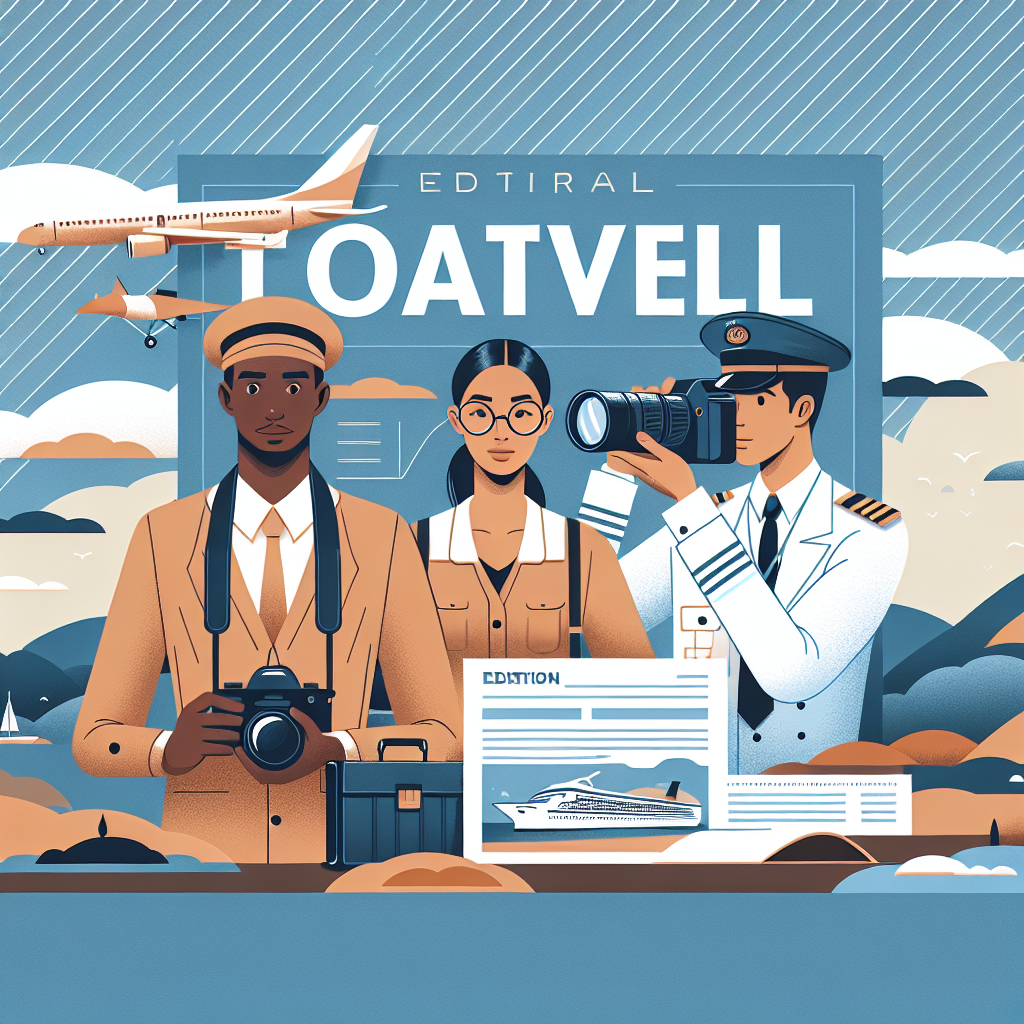Breaking into the world of tourism and on-the-road professions can feel daunting, but a clear plan turns ambition into action. How To Get Started With Travel Occupations is a practical primer for people seeking flexible, adventurous livelihoods — from seasonal guiding to long-term roles in hospitality and transportation. This guide covers foundational steps, realistic expectations, and resources to help you begin a career that lets you see the world while earning.
Getting Started in Travel Careers
Begin by assessing your goals: do you want occasional seasonal work, a full-time role that involves relocation, or a remote-friendly travel job? Typical travel occupations include tour guides, travel agents, flight attendants, cruise ship staff, international hospitality positions, and freelancing roles like travel writing or photography. Each path has different skill requirements, certifications, and lifestyle trade-offs.
Essential steps to launch a travel occupation
Follow these practical steps to create momentum and avoid common pitfalls.
- Identify transferable skills. Customer service, language ability, first aid, and sales experience are valuable across tourism jobs.
- Gain certifications. Consider CPR/First Aid, food safety, or hospitality diplomas; specific roles may require industry certificates or licensing.
- Build a simple professional profile. A clear resume, LinkedIn or industry-specific profile, and a short portfolio (for creative roles) increase credibility.
- Start local. Seasonal events, regional tour companies, and hotels often hire entry-level staff — a good way to learn before committing to relocation.
- Network intentionally. Attend travel job fairs, join online communities, and connect with professionals in the niche you want to enter.
Skills and qualifications that matter
Technical training can help, but soft skills often determine long-term success. Strong communication, cultural sensitivity, problem-solving, and adaptability are essential. Language skills and familiarity with booking systems or point-of-sale terminals can be major advantages for travel agents, guides, and hospitality workers.
Understanding job types and earning potential
Research realistic salary ranges and contract types before you commit. Some travel occupations offer steady pay and benefits (e.g., airline staff, hotel management), while others are freelance or seasonal with variable income (e.g., tour leaders, travel influencers). Use trusted labor statistics and occupational profiles to compare roles and growth prospects; for a detailed occupational overview of travel agent roles and labor trends, consult the BLS occupational profile for travel agents.
Practical tips for getting hired
Employers in tourism value demonstrated enthusiasm for travel and customer-facing experience. Tailor applications to highlight relevant interactions, problem resolution examples, and any international exposure. For remote or freelance travel roles, create a focused online presence: a concise portfolio, client testimonials, and project samples that show your niche expertise.
Consider short-term strategies to build experience quickly:
- Volunteer at local festivals or visitor centers to gain practical event and guest-service experience.
- Take language or cultural competency courses to increase employability in international settings.
- Accept temporary or seasonal contracts to network and gather references.
Preparing for life on the move
Travel occupations often demand flexibility with schedules, rapid problem-solving, and emotional resilience. Establish routines that make mobility sustainable: keep digital copies of important documents, maintain emergency funds, and cultivate health and safety habits while on the road. Digital nomads and long-term travelers should also understand visa rules, tax implications, and local healthcare access in their target countries.
For inspiration beyond conventional employment, explore multidisciplinary perspectives that connect travel with cultural, spiritual, or experiential practices. One thoughtful exploration of human connectivity and perception is an exploration of mental telepathy and cosmic communication, which can broaden how you think about cross-cultural encounters and nonverbal communication while traveling.
Quick checklist
- Clarify your travel-work goals and preferred job types.
- List and upgrade relevant skills and certifications.
- Apply locally to build experience; use seasonal roles as stepping stones.
- Create a concise online portfolio or resume tailored to travel employers.
- Research pay, contracts, and legal requirements for your target destinations.
Frequently Asked Questions
Q: Do I need formal education to work in travel occupations?
A: Not always. Many entry-level travel jobs prioritize customer service experience, language skills, or specific certifications (e.g., CPR, food safety). Certain managerial or specialized roles may require formal degrees or hospitality training.
Q: How can I find legitimate seasonal or short-term travel jobs?
A: Start with reputable regional tourism offices, established tour operators, and accredited hospitality recruitment agencies. Verify employer reviews and ask for contract details before committing. Networking and industry forums are also valuable sources for vetted opportunities.
Q: What are the best ways to transition from seasonal travel work to a permanent travel career?
A: Leverage seasonal experience to build a professional network and gather references. Pursue continuous skill upgrades (languages, certifications), document achievements, and aim for roles that offer upward mobility like supervisory positions in hospitality or logistics coordination in travel companies.



